Americas
2015
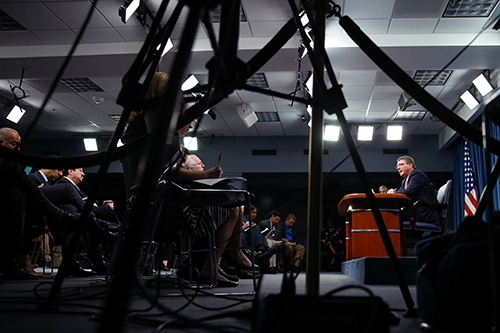
In times of war, Pentagon reserves right to treat journalists like spies
The Pentagon has produced its first Department of Defense-wide Law of War Manual and the results are not encouraging for journalists who, the documents state, may be treated as “unprivileged belligerents.” But the manual’s justification for categorizing journalists this way is not based on any specific case, law or treaty. Instead, the relevant passages have…

Increased risks for filmmakers and sources in documentaries’ Golden Age
Joshua Oppenheimer travelled to New York for today’s premiere of his documentary “The Look of Silence,” but one place he won’t travel is Indonesia, where he says his work on this and an earlier film puts him at risk. Earlier this week, Laura Poitras, the Academy Award-winning director of the documentary CITIZENFOUR, filed a lawsuit…
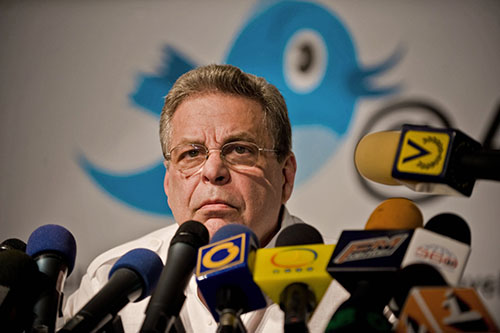
In Venezuela, online news helps journalists get their voices back
When Venezuelan President Hugo Chávez was rumored to be gravely ill four years ago, his socialist government was tightlipped about the diagnosis. Then in June 2011 a source in Havana, Cuba, where Chávez was being treated, told Nelson Bocaranda, a veteran columnist for the Caracas daily El Universal, that the president had cancer.
Fabricated attacks by Colombian journalists mask real dangers
Although Colombian journalists are frequently threatened by Marxist guerrillas, criminal gangs, and corrupt politicians trying to silence them, two recent cases that created widespread concern–including alerts from CPJ–were fabricated by the very reporters who claimed to have been targeted.

CPJ joins call urging White House to protect encryption for journalists
Journalists are safest when their devices are secure by default. That is why the Committee to Protect Journalists today joined a coalition of nearly 150 civil society organizations, companies, trade associations, security experts, and policy specialists in sending a joint letter to U.S. President Barack Obama. The letter urges the president to support the broad…
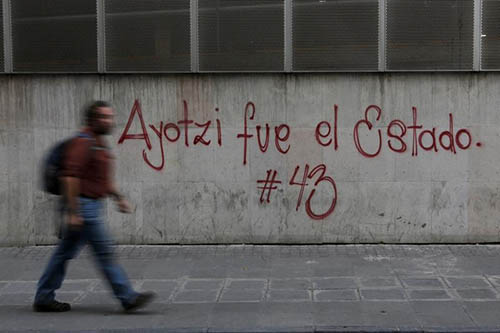
In Mexico, reporters struggle to cover unrest over missing students
Veteran reporter Sergio Ocampo was having a late dinner on September 26 when his editor called about a shooting in the city of Iguala in Guerrero state. Students from the Ayotzinapa teacher training college were apparently among the victims. But when Ocampo, a correspondent for the newspaper La Jornada, called the then-mayor of Iguala, José…
On World Press Freedom Day and journalists’ safety
Last week, I met a Cameroonian journalist who worked in the Congo until he fled following a series of threats and an attack on his home by armed men who assaulted his sister. Elie Smith, a TV host who documented alleged abuses by police and was outspoken in his criticism of the government, said he…
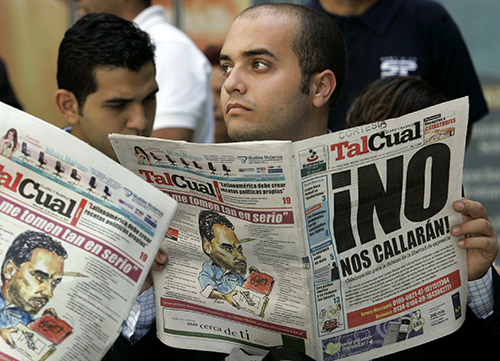
In Venezuela, Tal Cual under pressure but not defeated
Tal Cual, one of the few remaining Venezuelan newspapers critical of the government, is so shorthanded there’s often no receptionist on hand to let people in. Visitors must bang on the front door until someone in the newsroom notices. That can take a while because there are hardly any editors or journalists left.
CPJ joins call for meaningful reform of US surveillance
Mass surveillance and the bulk collection of metadata by the U.S. government pose serious threats to journalists in the U.S. and around the world, which is why the Committee to Protect Journalists today joined a wide coalition of privacy, human rights, technology, and trade groups calling on Congress and the Obama Administration to include certain…
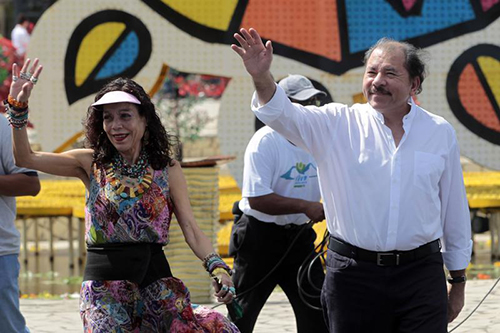
Long silence from Nicaragua’s president as first lady keeps press at arm’s length
It’s been nearly 3,000 days since Nicaraguan President Daniel Ortega last held a news conference, according to the opposition newspaper La Prensa. But when journalists complain about the lack of access to Ortega they often direct their ire not at the president but at the first lady, Rosario Murillo.